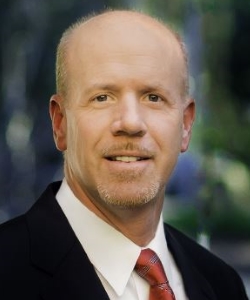
Health care costs are on the rise, which is affecting law firms drastically, both in terms of budgeting and recruiting.
 Ward and Smith's Chief Operating Officer Mike Epperson shares his challenges and strategies in tackling this situation in the latest edition of Legal Management: The Magazine of ALA.
Ward and Smith's Chief Operating Officer Mike Epperson shares his challenges and strategies in tackling this situation in the latest edition of Legal Management: The Magazine of ALA.
From the article:
Remember the good old days when health care benefits were provided at a premium level for a small additional cost to the employer? Many of us have not been around long enough to enjoy that recollection!
Today, health care costs are a major line item in most law firms’ budgets and these costs are growing at an alarming rate, motivating firms to work hard to find ways to reduce rates. Health care costs are also an important consideration for recruiting and hiring. New employees are scrutinizing a firm’s offered health care benefits during their job decision making process.
Let’s face it — most midsize law firms pay attorneys and staff within a similar range. So, many firms are trying to attract the same top talent, and those candidates take a careful look at not only salary, but also at other financial benefits of their employment such as the existence of a 401(k), bonus potential and, importantly, the cost to them of health care coverage.
To address these concerns, many firm administrators work with a benefits broker to ensure we are exercising due diligence in selecting a cost-effective health insurance provider. But even this process can be difficult.
In fact, how many of you have had the following experience: It’s time for your annual health plan renewal and your trusted broker comes in and tells you that the health care cost trend is an annual increase of 8 to 10 percent. Then the broker brings you an initial quote from your current insurance provider that reflects an increase of 12 percent. This is usually accompanied by a statement about how much the insurance provider appreciates the long relationship they have had with your company and that they will barely break even with your renewal because the cost of health care just continues to increase.
Your broker then shares with you an analysis of your costs and suggests that a “fair” renewal should be more like 6 to 8 percent rather than 15. Miraculously, the broker then comes back in a week or two and tells you they have great news: “Our current insurance provider has agreed to a renewal with an increase of only 6 percent, but only if you will execute an agreement right now and not get competitive quotes from other providers.” Sound familiar?
You can read the entire article online here or download the entire magazine here.





